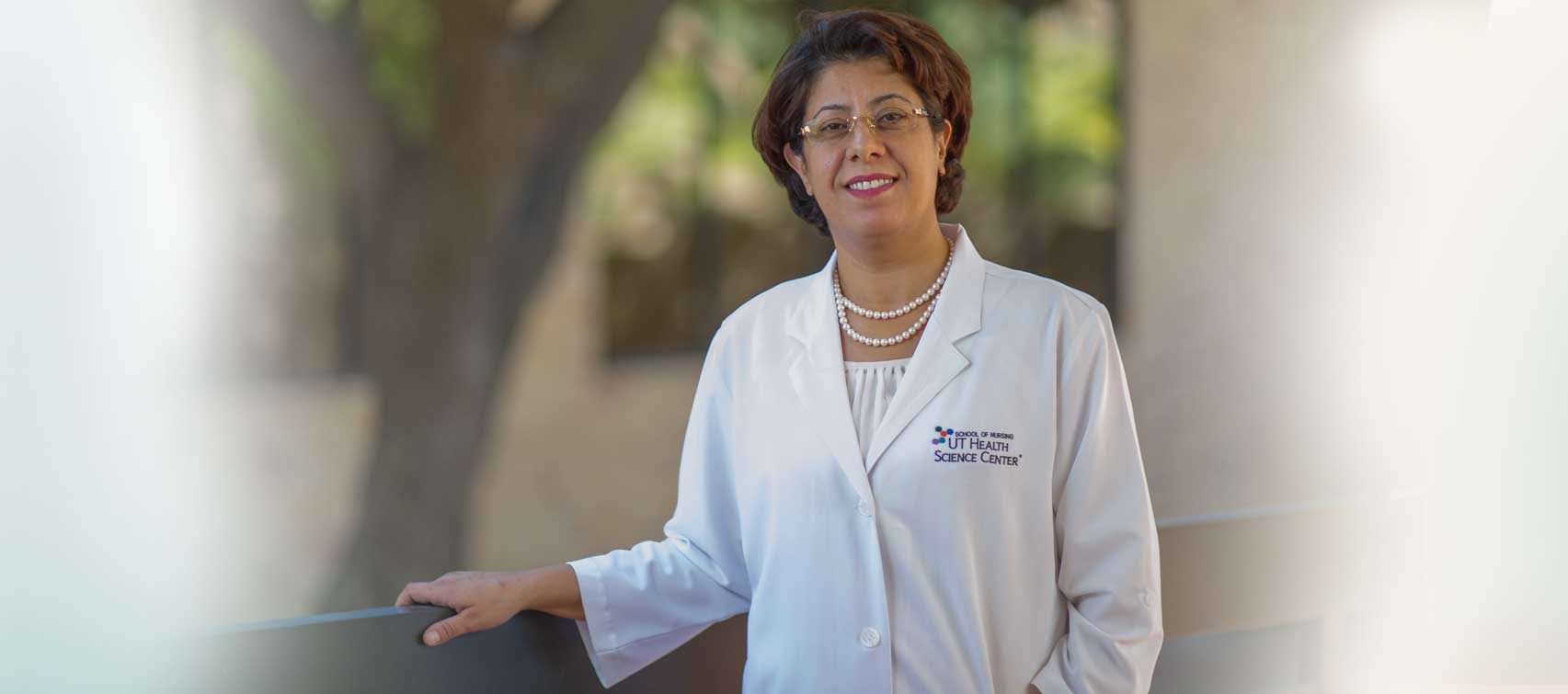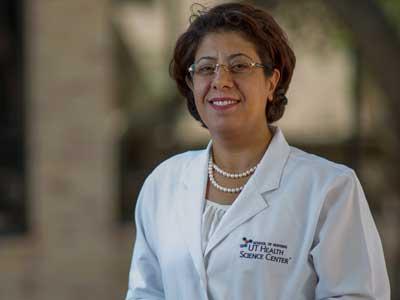Azizeh Sowan, Ph.D., M.S.N., B.S.N., believes that part of every day should be spent learning something new.
Growing up in a close-knit family of 10 in Jordan, Dr. Sowan said her mother had little education compared to her father, who had three educational degrees. However, they both valued education and challenged their children to set high goals.
Although drawn to mathematics and physics, Dr. Sowan said her father urged her to become a nurse because it was a stable career that worked well with family life. She was a hospital nurse for eight years. “I love change and challenge in my life, and learning every day is the way I live,” she said. “When I was a hospital nurse, I tried to work in every unit to learn more.”
When she began her master’s studies, Dr. Sowan discovered the joy of research. “It gave me the opportunity to grow in a different way,” she said, incorporating logical reasoning and statistics into nursing and eventually into her doctoral studies.
Making research applicable to nursing
This became her life’s work. “I don’t remember anything from the research courses I had as an undergraduate,” she said. “I wanted to change the whole way research is taught and make it applicable to nurses.”
An assessment project she conducted at five Jordanian hospitals in 2008 showed that 65 percent of nurses thought of research as primarily physician’s work. “The majority of nurses in Jordan were not aware of the research and evidence-based practice resources available to them, and, in fact, there often were not many resources available to them in some hospitals,” she said.
She created an interactive, online, evidence-based practice course for health care professionals in 15 Jordanian hospitals that helped clinicians learn how to find answers to research questions involving patient care. “I had to put it on a CD because most nurses there do not have access to the Internet. The Internet is not easily accessible, especially in the underserved hospitals, like it is in the U.S.,” she explained.
The success of the project, conducted in coordination with the Jordanian Nursing Council and funded by the U.S. Agency for International Development, resulted in Dr. Sowan receiving the “Best Nursing Project in the Arab World Award” from the League of Arab States in 2013.
The same year, Dr. Sowan joined the School of Nursing at the UT Health Science Center San Antonio as an assistant professor in the Department of Health Restoration and Care Systems Management, with her specialty of informatics. “I appreciated the friendly interview I had with faculty here, and Dean (Eileen T.) Breslin’s exceptional vision was a great motivator for me to work here. It just felt like home,” she said.
“Nursing informatics is a great science that integrates information technology to manage health information and improve patient care. All nursing students should be competent in informatics skills to effectively use patient care technologies to promote better health outcomes,” she said.
Writing the curriculum
Dr. Sowan, who teaches graduate-level courses in nursing leadership and informatics, reworked the “Healthcare Information Systems and Patient Care Technologies” course for graduate students. The course now includes new topics such as:
- IT business-process improvement,
- The role of IT in accountable care and reliable organizations,
- The meaningful use of IT applications and health care reform, and
- Improvement of safety using IT systems.
The course is rigorous and Dr. Sowan expects students to be change agents and conduct research on topics to improve care in their workplace. Some of the topics at a recent poster day included:
- “Developing a database for students with asthma in rural schools,”
- “Improving the electronic documentation of the discharge process in the emergency department,” and
- “The effect of using two IT systems and a paper system in a hospital: Suggestions for improvement.”
“Every course project should be a publishable work,” she said. “I always encourage students to present their work at conferences and publish their projects.”
As for her current projects, Dr. Sowan is conducting research on the effect of IT on clinical safety, quality improvement and workflow efficiency, including five projects in partnership with University Hospital System. While embracing the nursing leadership at University Health System, Dr. Sowan stressed the importance of the academic-practice partnership in improving health care outcomes.
One of her projects is studying alarm fatigue among nurses. The U.S. Food and Drug Administration recently logged 550 deaths in its database over four years due to alarm fatigue, she said. “There are many alarms used in hospitals that warn caregivers about problems with patients, but nurses can become desensitized to them,” she explained.
Looking ahead, Dr. Sowan’s dream is to collaborate with other institutions throughout Texas to promote the use of informatics in higher education. She hopes one day to carry this forward to an international level to benefit patients in Jordan, other Middle Eastern countries and throughout the world, all in honor of her parents, who encouraged her to dream big and learn something new every day.

